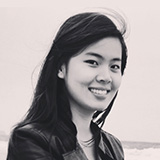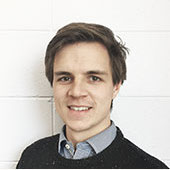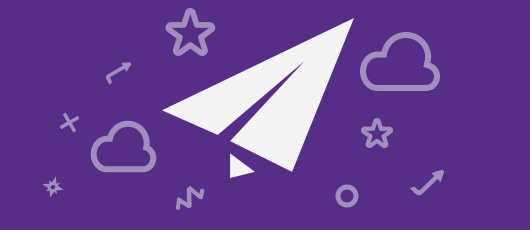Not long ago, we had to say goodbye to one of our software developers who was about to embark on a journey to “save the world” (as some millennials would say). Before Lewis left, I had a chance to put him on the spot and have an “exit interview” about his experience of working at Enabled.
Below are excerpts from our conversation with some edits for clarity and audio clips for the most interesting parts.
Background info
Me: Take us back to where it all began. When did you join Enabled?
LEWIS: I started in 2016 as a part time employee, then went to Japan for 3 months, and came back. They were gracious enough to have me back to the family.
Me: How did you know about Enabled?
LEWIS: I met Grant at Mega which was a start-up incubator and Grant was a mentor there. And I won a scholarship for that program.
Me: What’s your background?
Lewis: I have an undergraduate in music, jazz drums but my masters is like IT/business. I’m a self-taught developer so I self-taught myself coding.
Me: How do you go from music to coding?
LEWIS: Computers are always a hobby. I remember in year 8 I downloaded programs and figured out how they worked. And then when the App Store came out and you could start making apps on the iPhone, I became interested. I remembered walking into dad’s office and ask: “Dad, do you know how to code?” He turned around and said: “This house is built with code.”
Me: Do you prefer working on front or back end stuff?
LEWIS: Back end. Front end is tedious. I prefer to imagine computers talking with each other in the cloud.
Time at Enabled
Me: What do you miss about working at Enabled?
LEWIS: We’ve got a lot of diversity, like uber-nerds, gamers, guys who are obsessed with crypto, foodies. It’s funny that there’s this melting pot of people. I like being exposed to different kinds of ideas, different people with different thoughts and life journeys.
Me: What do you like about working here?
LEWIS: One thing that we do well is we like trying new things and we’re not afraid. As evidenced by a recent project where we used serverless tech, which was only about 2 years old. The great thing about that is we get to skill up in a whole completely new area and one that’s still growing, in high demand and interesting.
Me: What was your biggest or most challenging project?
LEWIS: There is this project where it’s been a real shift for me because instead of it being just about me writing code, I was also managing this component of the project. It forced me out of my comfort zone, interacting with clients, moving from just software development into architecture as well.
Me: What are you most grateful for during your time here?
LEWIS: Grant and Craig have been incredibly generous with me and the whole team in supporting some of my other endeavours. It’s really cool that I get to share those things with the team and the team be excited about them. I’m grateful that they took a chance on me and there’s been a lot of investment in me.
Me: What have you learned? Or how have you grown as a person and as a professional?
LEWIS: If you look at just pure skillsets, I’ve gained new skills. But taking a step back and looking at the bigger picture, I’ve improved my problem solving, critical thinking, and learning how to learn. Coming straight from uni to this work environment where people are invested in you succeeding, not only the project’s success but also the individual’s success, is really beneficial and something that I’m gonna carry for the rest of my career.
Side project and future endeavour
Me: Tell me about the trip to India and your side project which is going to be your full time focus after leaving Enabled.
LEWIS: It’s called My Well – about helping farms sustainably use ground water. An issue faced in India is an overdependence/overexploitation of ground water. I was contacted through my university to work on this technical component of their other projects. Broadly this project taught people in villages how to monitor ground water level. So My Well uses SMS and smart phone application for farmers to easily record well readings and other water data. This is still in a prototype phase. One of the great things about me going full time in my own endeavours is that I’ll be able to invest in this a lot more.
Me: Why did you do this project? Was there a bigger reason?
LEWIS: Yes definitely. I’m blessed enough to come from Australia to have the opportunity to study at university at a master’s level. I believe I’ve been given these abilities and tenacity and excitement about technology and I want to see technology used to transform the lives of other people who come from less advantaged communities.
This is a gross over-exaggeration but I’d like to contrast two things: I have friends who help Amazon sell more toilet paper to people who don’t need it, whereas I feel the mission behind what I’m trying to do with the My Well project and some other projects serves a greater purpose in improving the lives of people who really need it.
Me: So how do you drive My Well forward from now? Are you going to get it going strictly through grants?
LEWIS: Short term, hopefully; long term it’s not really sustainable. Sometimes people who do this kind of work like aid organisations can leave these communities worse off than when they first began. So I’m passionate about this base of the pyramid business model, bringing people at the lowest level, the poorest into these financial markets, into these economies, especially the digital economies. There’s a lot of potential there to create sustainable businesses.
Parting words of wisdom
Me: What would you like to say to the team?
LEWIS: Most of all, I’d like to extend my gratitude to the team. Over all I’ve absolutely loved the team here and working here. And I hope to be able to take these things that I’ve learned on into the future.
Me: Any words for anyone potentially joining the Enabled team?
LEWIS: Don’t be afraid of Dylan [laughs]. The people who do really well are really good at learning enough about the field but haven’t forgotten that two months ago they didn’t know anything about the field and they’re the best communicators. I think fundamentally, writing software is a creative exercise. And as a developer, you need the freedom to find whatever works best for you.
During his time at Enabled, Lewis also embarked on a remote working experiment in the Philippines for a month. Read his article for more candid insights.


